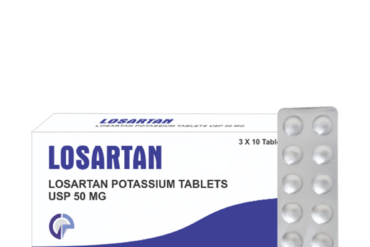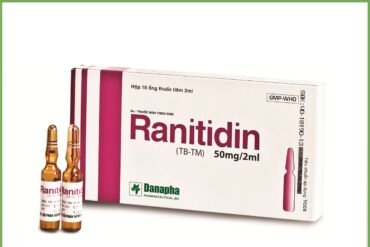The Power of Immunizations: Vaccines Explained

Table of Contents
- The History of Vaccinations: A Game
- Changing Discovery
- The Science Behind Vaccines: How They Work
- Debunking Common Vaccination Myths
- The Importance of Childhood Immunizations
- The Future of Vaccines: Advances and Innovations
The History of Vaccinations: A Game-Changing Milestone in Medicine
Vaccinations have revolutionized the field of medicine and played a crucial role in saving countless lives throughout history. This section sheds light on the fascinating journey of immunizations, uncovering the significant milestones that have shaped the power of vaccines as we know it today.
- 1796 ndash; Smallpox: The Birth of Vaccination
The history of vaccinations began with Edward Jenner, an English physician who discovered how to protect individuals against smallpox. Using cowpox material, Jenner pioneered the concept of immunity by inoculating a young boy. His success laid the foundation for the development of future vaccines.
- 1885 ndash; Rabies: A New Era of Vaccines
Louis Pasteur, a renowned French chemist, took the next leap in vaccine history by creating an attenuated rabies vaccine. This monumental achievement marked the first successful inoculation against a viral disease in humans, inspiring the development of further life-saving remedies.
- 20th Century ndash; Defeating Devastating Diseases
The 1900s were a landmark period for vaccinations, witnessing significant breakthroughs against various diseases. In 1955, the development of the polio vaccine by Jonas Salk laid the groundwork for eradicating the debilitating disease. Subsequently, vaccines against measles, mumps, rubella, and hepatitis emerged, leading to remarkable declines in their prevalence worldwide.
- 21st Century ndash; Advanced Protection and Global Impact
Modern vaccines have reached unprecedented levels of effectiveness and safety. The introduction of the human papillomavirus (HPV) vaccine in 2006 provided protection against multiple cancer-causing strains, while vaccines against influenza continue to evolve each year to combat rapidly changing strains. Additionally, initiatives like the Global Polio Eradication Program highlight the power of immunizations in achieving global health goals.
In conclusion, the history of vaccinations is a remarkable journey of triumph over deadly diseases. From Edward Jenner’s smallpox vaccine to the development of advanced immunizations in the 21st century, vaccines have consistently demonstrated their power to prevent illnesses, protect communities, and shape the future of public health.
Changing Discovery
Immunizations have been a game-changer in the field of medicine, transforming the way we prevent and control infectious diseases. Over the years, scientific research and advancements in technology have led to significant discoveries in the realm of vaccines. These breakthroughs have not only revolutionized healthcare but have also saved countless lives worldwide.
Vaccine Development:
- Vaccines are created using weakened or inactivated forms of pathogens that cause diseases. They stimulate the body’s immune system to produce antibodies without causing the actual illness.
- Advancements in vaccine development have allowed scientists to target a wider range of diseases. From the common flu to life-threatening illnesses like polio or measles, vaccines offer protection against numerous harmful pathogens.
- New generation vaccines are being developed using advanced technologies like DNA or RNA-based platforms. These innovative approaches hold promise for addressing various infectious diseases more efficiently.
Evolution of Immunization Programs:
- In the past, immunization programs were primarily focused on childhood vaccinations. However, with scientific progress, vaccination efforts have expanded to include adults and the elderly.
- Developing countries have witnessed significant improvements in immunization coverage, thanks to global initiatives like the World Health Organization’s Expanded Program on Immunization.
- Mobile vaccination units and door-to-door campaigns have also played a crucial role in reaching remote areas and underserved communities.
Lifesaving Impact:
Immunizations have had a profound impact on public health by reducing the incidence and severity of many infectious diseases.
- Vaccines have completely eradicated diseases such as smallpox, which once caused millions of deaths worldwide.
- They have significantly decreased the number of cases and complications associated with illnesses like measles, mumps, tetanus, and hepatitis.
- Immunization also helps prevent the spread of diseases, protecting both vaccinated individuals and those who cannot receive vaccines due to medical reasons.
Future Possibilities:
While vaccines have transformed global health, ongoing research continues to push the boundaries of what immunizations can achieve.
- Scientists are working towards developing vaccines for emerging infectious diseases like COVID-19, which have posed significant global challenges.
- Advancements in vaccine technology may pave the way for personalized vaccines, tailored to an individual’s specific genetic makeup.
- Furthermore, ongoing research on vaccines for cancer and allergies holds promise for a future where immunization can combat a broader range of diseases.
In conclusion, immunizations have proven to be a powerful tool for disease prevention, shaping the landscape of global healthcare. Through the continuous discovery and development of vaccines, humanity stands better prepared to combat existing and emerging infectious threats, ultimately leading to a healthier and safer future for all.
The Science Behind Vaccines: How They Work
Vaccines are a crucial weapon in the fight against infectious diseases. They work by stimulating the body’s immune system to recognize and defend against specific germs. Let’s delve into the science behind vaccines and how they provide protection.
When a vaccine is administered, it contains either weakened or inactivated versions of the disease-causing microorganism or the specific parts of it that trigger an immune response. These components, known as antigens, are recognized as foreign invaders by the immune system.
Upon recognition, the immune system generates an immune response by producing proteins called antibodies, which are designed to neutralize the antigens. The immune system also creates memory cells that can remember the specific antigens in case of future encounters.
Vaccinating a person essentially simulates a natural infection but without causing illness or severe symptoms. The immune system responds by developing a defense mechanism, including the production of antibodies and memory cells.
While some vaccines contain whole viruses or bacteria that have been weakened or inactivated, others may only include specific parts of the pathogen, such as proteins or sugars. For example, the flu vaccine contains surface proteins from various strains of the influenza virus.
By exposing the immune system to harmless versions of these disease-causing agents, vaccines prepare the body to recognize and respond rapidly when exposed to the actual infectious agents in the future. If a vaccinated person encounters the pathogen, their immune system can quickly spring into action, recognizing and eliminating it before it causes severe illness.
Vaccines not only protect individuals but also help to achieve herd immunity. This occurs when a significant proportion of the population is immunized, making it difficult for the disease to spread. Even those who cannot be vaccinated due to health conditions or weakened immune systems benefit from the reduced risk of exposure to the disease.
It is important to note that vaccines undergo rigorous testing and regulations to ensure their safety and effectiveness. Continuous monitoring and further research contribute to improved vaccine development and public health outcomes.
In conclusion, vaccines work by stimulating the immune system to produce a response against specific pathogens, thereby preparing the body to defend against future infections. Through vaccination, individuals and communities can significantly reduce the risk of acquiring and spreading diseases, promoting a healthier and safer world for everyone.
Debunking Common Vaccination Myths
In recent years, there has been a rise in misinformation about vaccines, leading to a decrease in immunization rates and a resurgence of preventable diseases. To set the record straight, let’s debunk some of the most common vaccination myths:
- Myth 1: Vaccines cause autism. This myth originated from a now-debunked study. Extensive research has since been conducted, involving millions of children, showing no link between vaccines and autism. The benefits of vaccinations in preventing dangerous diseases greatly outweigh any potential risks.
- Myth 2: Natural immunity is better than vaccine-induced immunity. While it’s true that natural immunity can develop after contracting a disease, it comes at a cost. Natural infections can lead to severe complications, lifelong disabilities, or even death. Vaccines provide a safer way to develop immunity without risking these potential consequences.
- Myth 3: Vaccines contain harmful ingredients. Some vaccine opponents claim that vaccines contain toxic substances like mercury or formaldehyde, but these ingredients are present in negligible amounts and are well below toxic levels. Vaccines undergo rigorous testing to ensure safety and efficacy.
- Myth 4: Vaccines weaken the immune system. Vaccines are designed to stimulate the immune system, enabling it to recognize and fight specific diseases. They do not weaken the immune system but rather strengthen it by preparing it to respond quickly and effectively to future infections.
- Myth 5: Natural remedies or alternative therapies can replace vaccines. While maintaining a healthy lifestyle and boosting the immune system can have benefits, they cannot provide the same level of protection as vaccines. Vaccines are extensively tested and have a proven track record of preventing diseases that can be deadly or cause severe complications.
It is essential to rely on credible sources and consult healthcare professionals when it comes to vaccination decisions. The scientific community and major health organizations strongly endorse vaccination as one of the most effective tools in preventing infectious diseases. Vaccines save lives, protect communities, and contribute to a healthier future for all.
The Importance of Childhood Immunizations
Childhood immunizations play a crucial role in safeguarding the health and well-being of children everywhere. Vaccines are a powerful tool that protect against a wide range of diseases, preventing millions of illnesses and saving countless lives each year.
Here are some key reasons why childhood immunizations are so important:
- Disease Prevention: Vaccines protect children from serious diseases such as measles, polio, whooping cough, and hepatitis. By receiving the recommended vaccines, children develop immunity to these diseases, reducing the risk of illness and its potentially severe consequences.
- Community Protection: Immunizations not only protect the child receiving the vaccine but also contribute to the overall health of the community. When a large percentage of the population is immunized, outbreaks are less likely to occur and the risk of spreading contagious diseases decreases, ultimately protecting those who are more vulnerable, such as infants and individuals with weakened immune systems.
- Long-term Health Benefits: Childhood vaccines not only protect against diseases that can cause immediate harm but also provide long-term health benefits. For example, the hepatitis B vaccine helps prevent liver cancer later in life, and the human papillomavirus (HPV) vaccine reduces the risk of certain cancers, including cervical cancer.
- Prevention is Better Than Treatment: Immunizations are a preventive approach to healthcare, emphasizing the importance of stopping diseases before they occur. Preventing illnesses through vaccines is often more effective and cost-efficient than treating them after they develop. By immunizing children, we can avoid the suffering, medical expenses, and potential complications associated with vaccine-preventable diseases.
- Safe and Effective: Vaccines go through rigorous testing and monitoring to ensure their safety and effectiveness. The risks associated with vaccines are minimal compared to the risks of the diseases they prevent. Adverse reactions are extremely rare, and the benefits far outweigh any potential side effects.
- Global Impact: Childhood immunizations have made a significant impact worldwide in reducing the burden of infectious diseases. Through vaccination campaigns and international cooperation, diseases like smallpox have been eradicated, and others, such as polio, are close to being eradicated. Ensuring access to vaccines for every child is crucial to continue this progress and protect future generations.
By vaccinating children, we provide them with the opportunity to live healthy lives and build a foundation for a healthier future. Immunizations are one of the most effective and important public health measures available, making it essential to keep up to date with childhood immunization schedules and prioritize the well-being of our children.
The Future of Vaccines: Advances and Innovations
Vaccines have played a crucial role in protecting humanity from numerous infectious diseases throughout history. As medical science advances, new innovations are constantly being developed to make vaccines even more effective and accessible. Here are some of the key advancements shaping the future of vaccines.
1. RNA Vaccines
Traditional vaccines typically use weakened or inactivated pathogens to trigger an immune response. However, RNA vaccines represent a groundbreaking approach. They utilize a small piece of genetic material, called mRNA, that provides instructions to the body’s cells to produce a harmless viral protein. This protein then triggers an immune response, leading to the production of antibodies that protect against future infections. RNA vaccines have shown immense potential, with success in recent COVID-19 vaccines like Pfizer-BioNTech and Moderna.
2. Therapeutic Vaccines
Therapeutic vaccines are a promising development in the field of immunizations. Unlike preventive vaccines that prevent infections, therapeutic vaccines aim to treat individuals who are already infected or have a chronic illness. These vaccines work by stimulating the immune system to target specific components of diseases, such as cancer cells. While still in the experimental stages, therapeutic vaccines hold great promise for future advancements in targeted treatments.
3. Needle-Free Vaccination
The fear of needles is a common barrier to vaccination for many individuals. To overcome this, researchers are exploring alternative delivery methods. Needle-free vaccination techniques include patches, sprays, and oral vaccines. These methods not only eliminate the pain associated with injections but also reduce the risk of needle-related infections. Moreover, needle-free vaccines are often more stable and easier to transport, making them particularly useful in remote or resource-limited areas.
4. Personalized Vaccines
Personalized vaccines are designed to meet the unique needs of individuals based on their genetic profile or health conditions. These vaccines take into account individual variations in immune responses and enable tailored prevention or treatment strategies. Personalized vaccines have the potential to enhance the effectiveness of vaccinations by optimizing immune responses and minimizing side effects. Research in this area holds great promise in combatting diseases with high genetic variability, such as influenza and HIV.
- Continued research on novel vaccine adjuvants (substances that enhance immune responses) to improve vaccine effectiveness.
- Development of needle-free and temperature-stable formulations to enhance accessibility and ease of vaccine administration.
- Exploration of novel vaccine delivery systems, such as microneedle patches and inhalation devices.
- Application of artificial intelligence and machine learning to accelerate vaccine development and identify new targets.
- Advancements in vaccine manufacturing techniques to increase production capacities and ensure rapid responses to emerging threats.
The future of vaccines is evolving rapidly, with innovations that promise greater efficacy, accessibility, and customization. These advancements not only protect individuals but also contribute to global efforts in eradicating diseases. As science progresses, vaccines will continue to be a powerful tool in safeguarding public health.


























